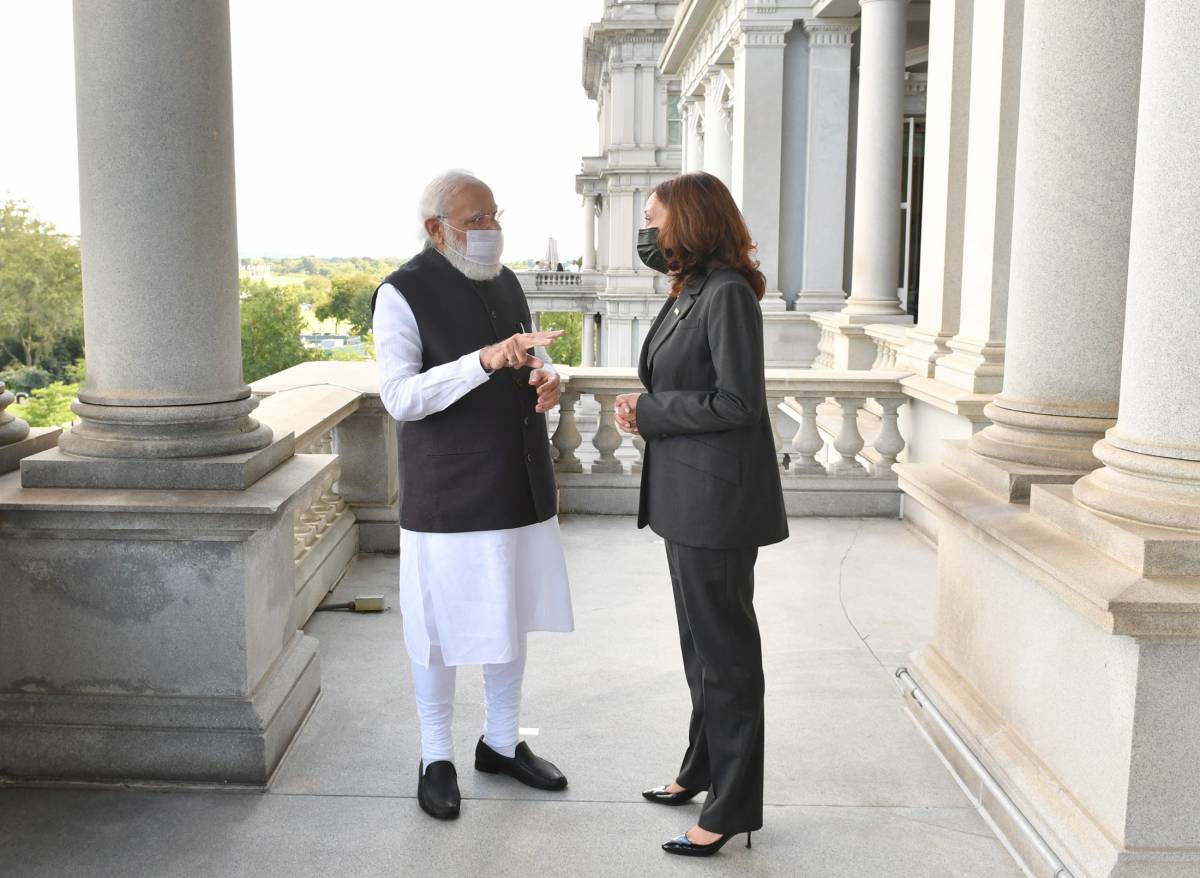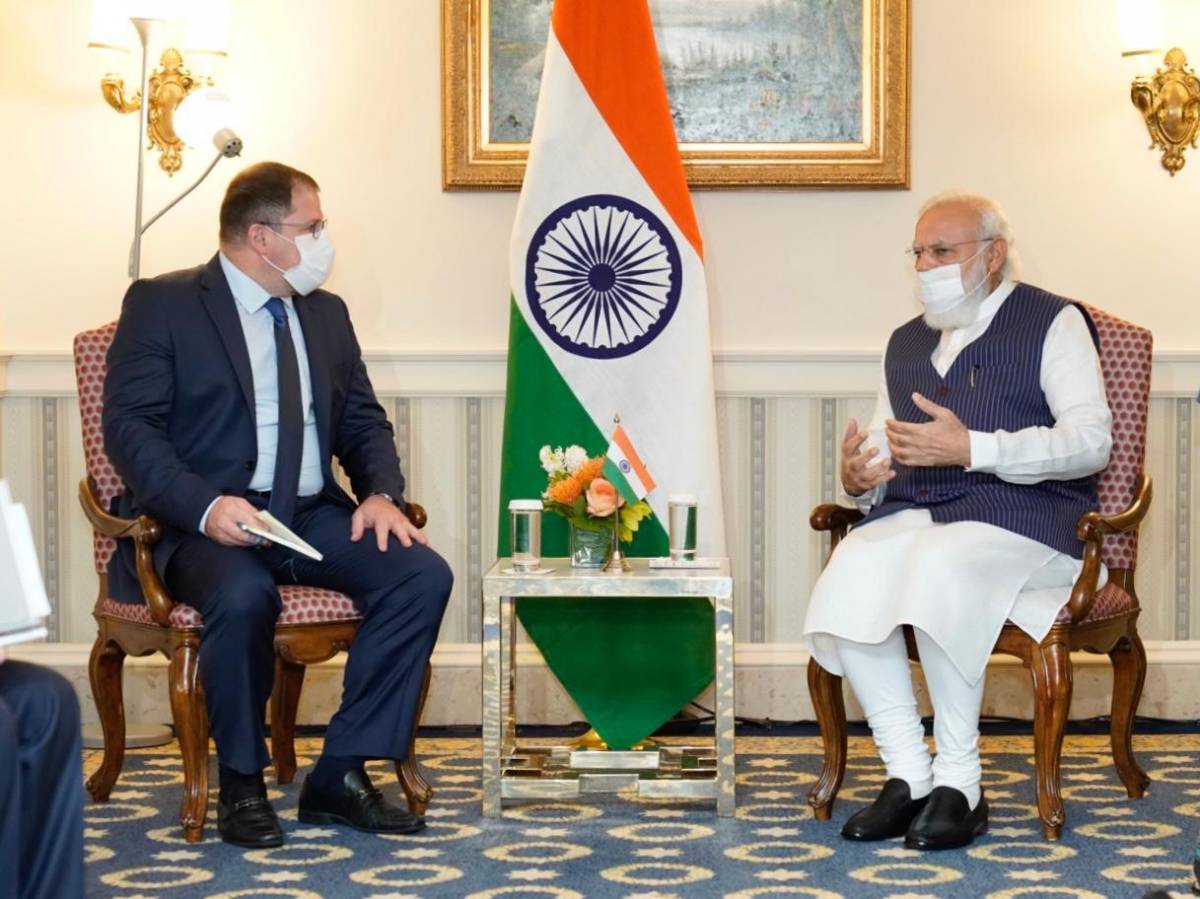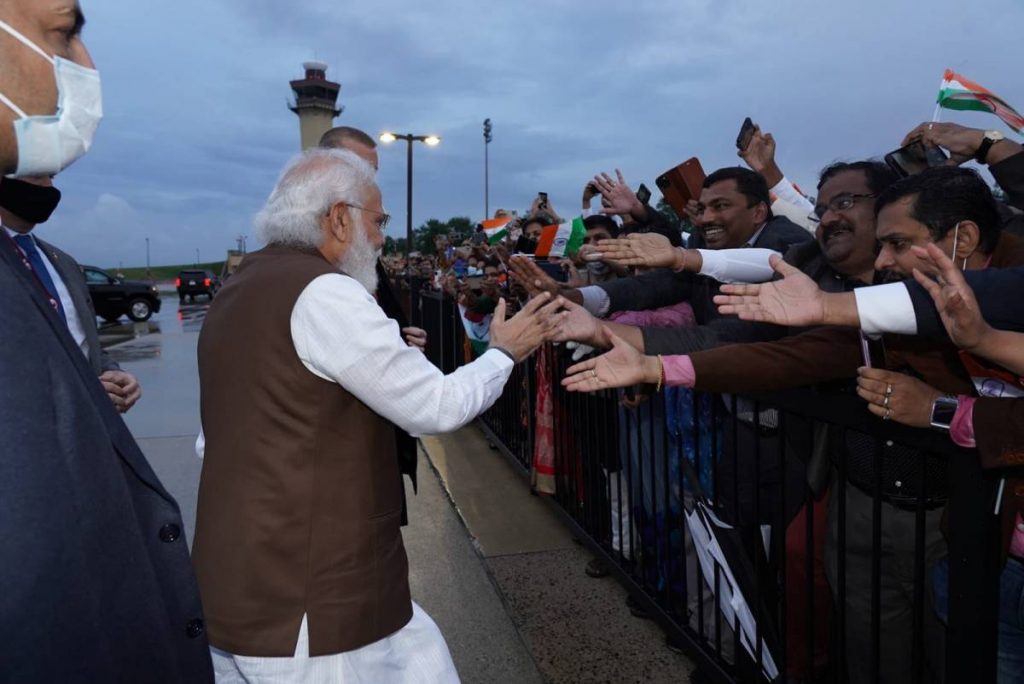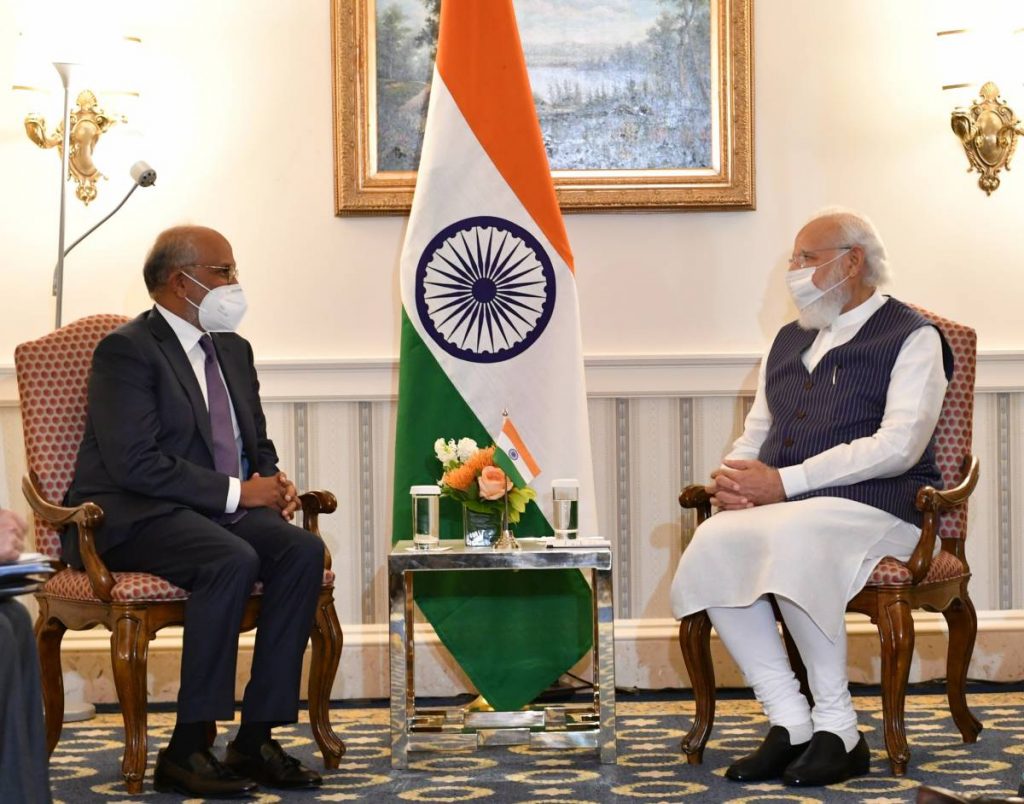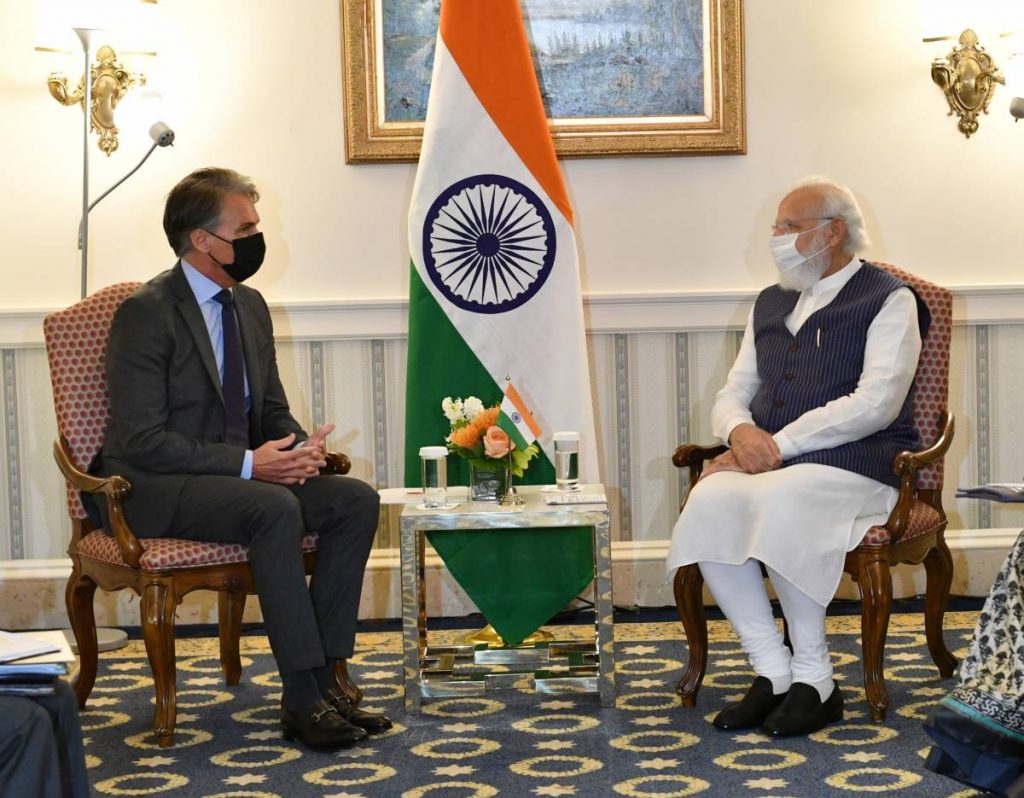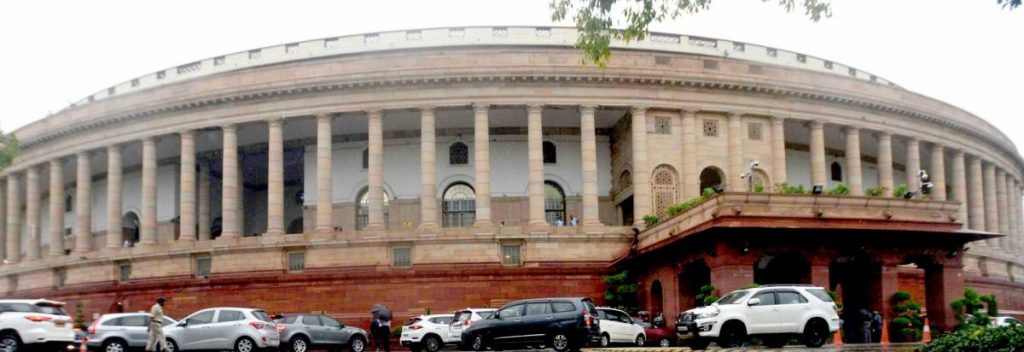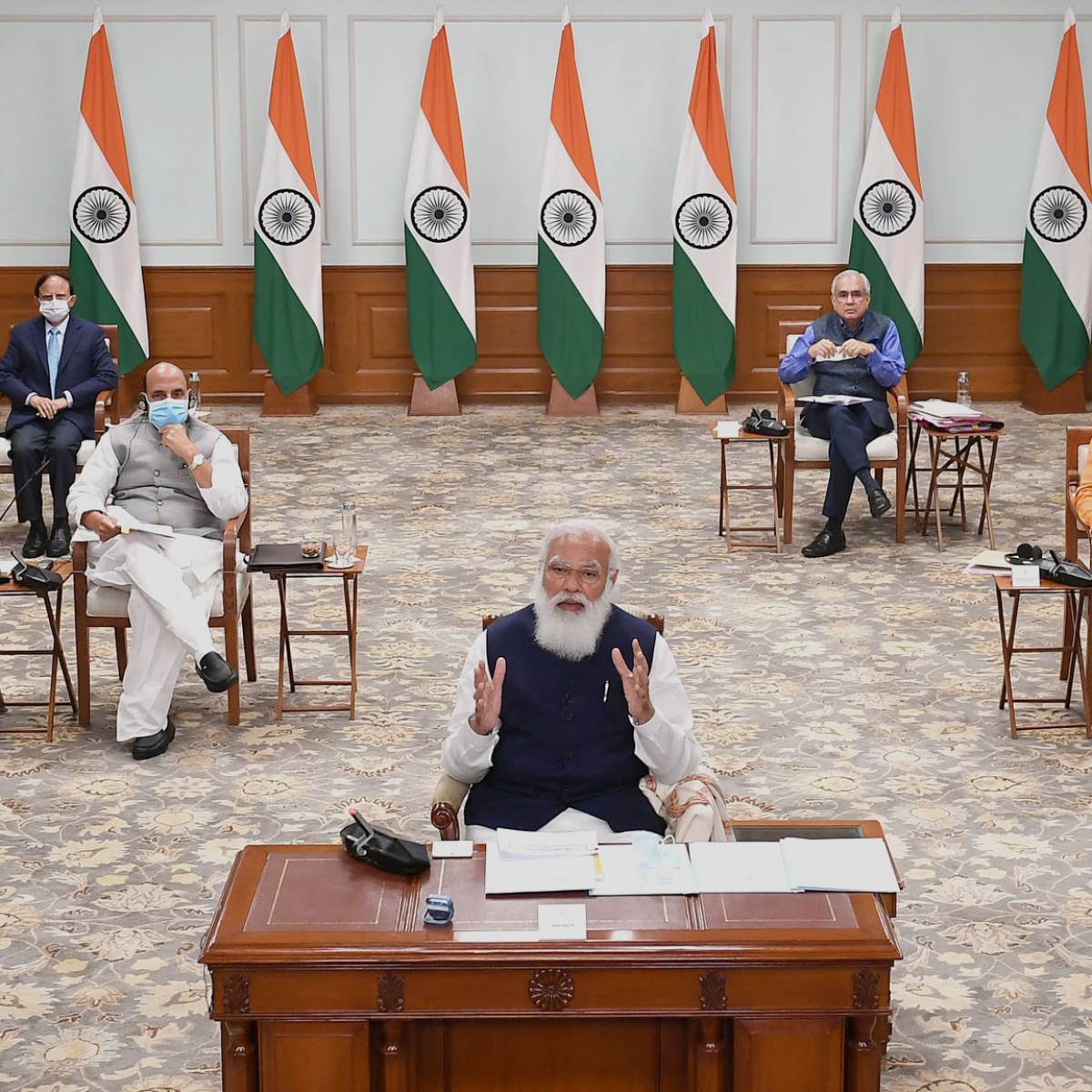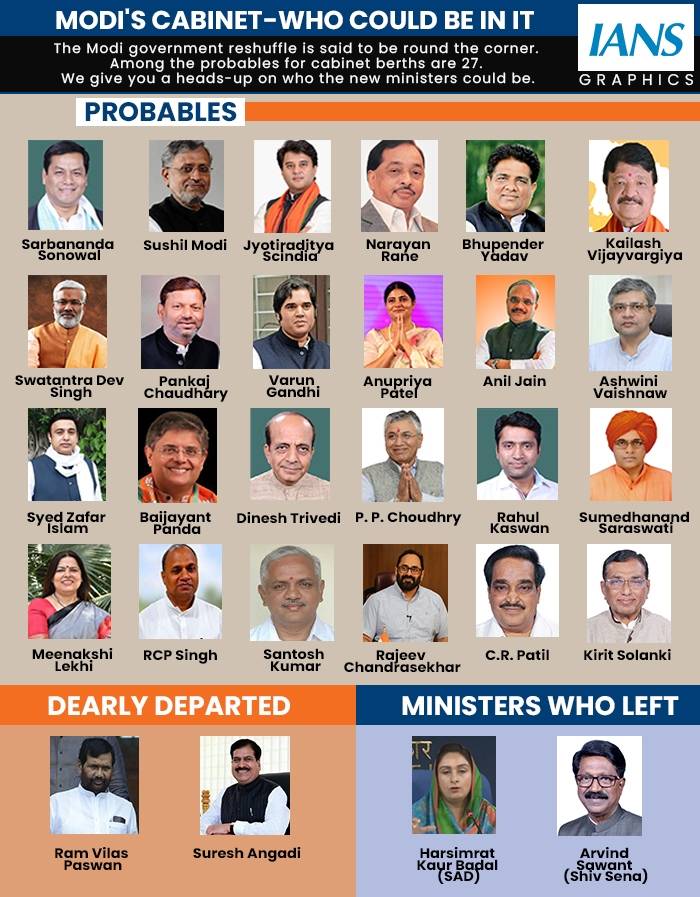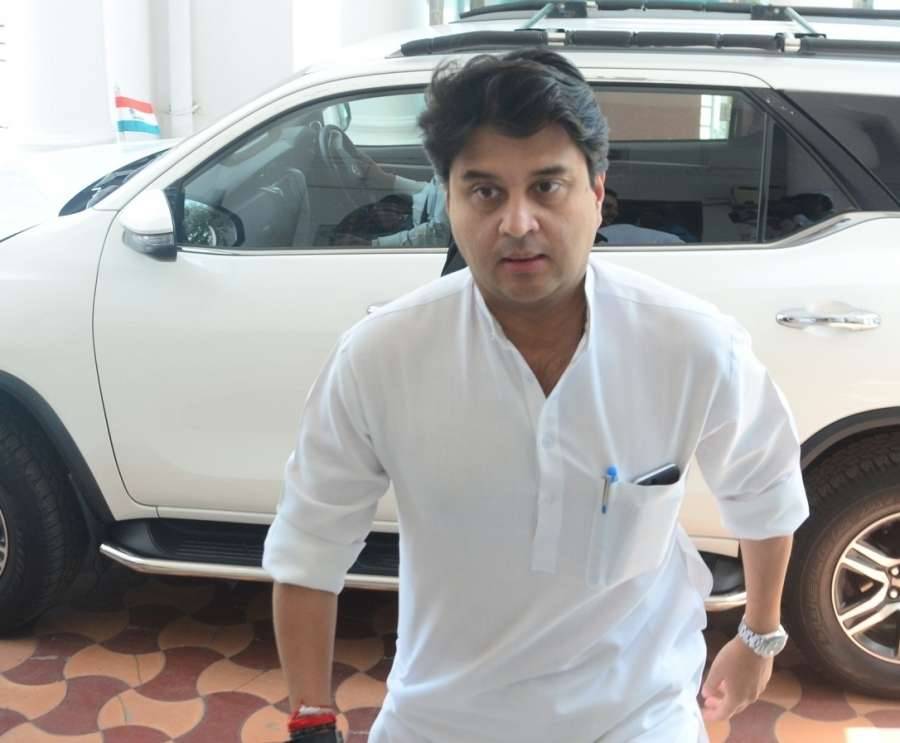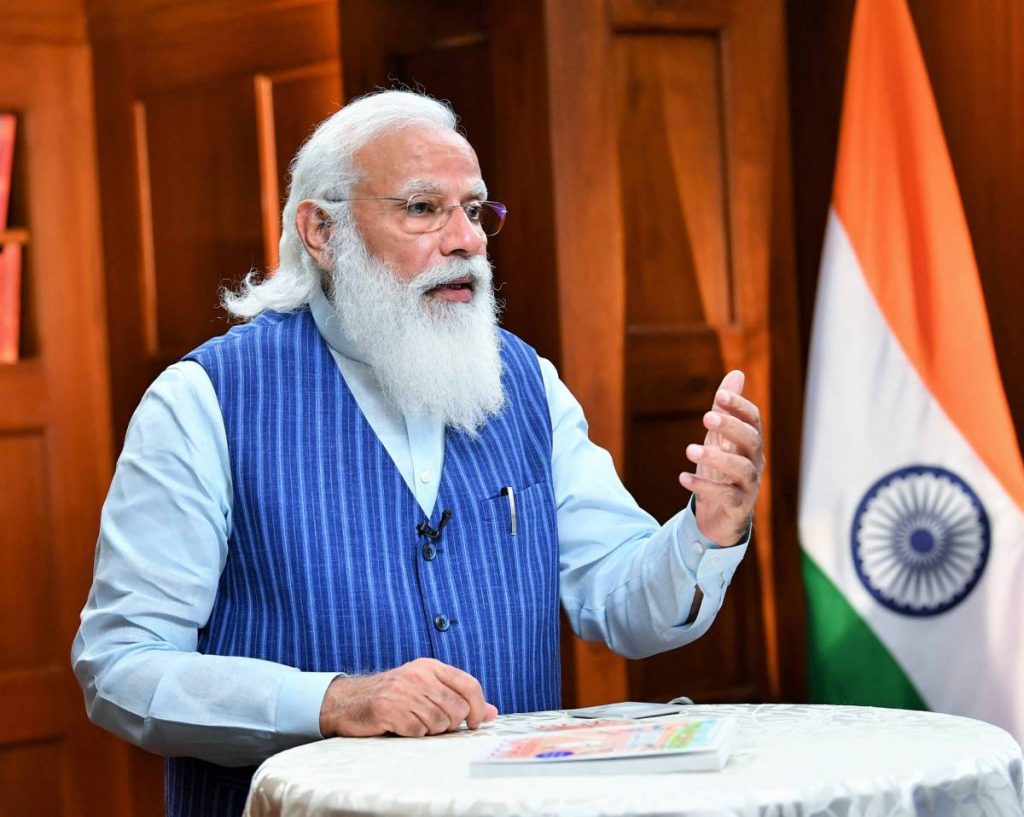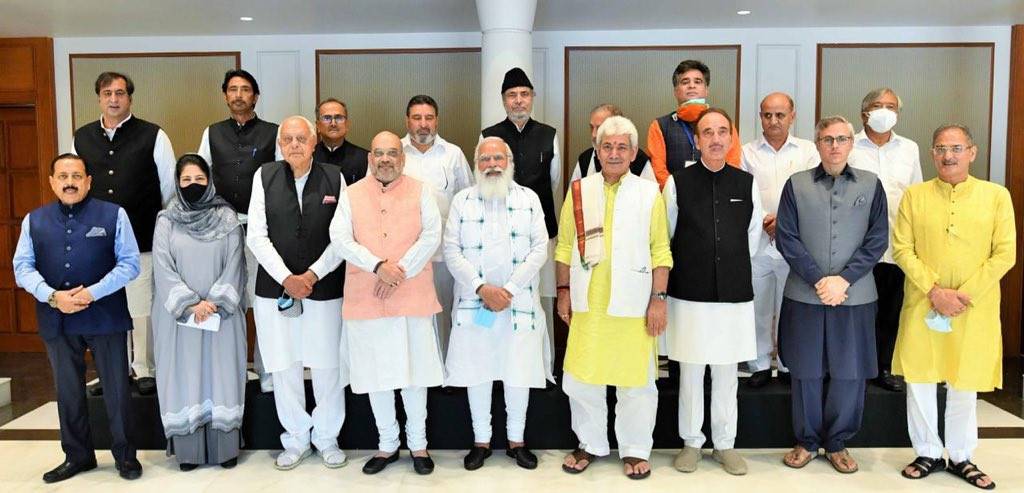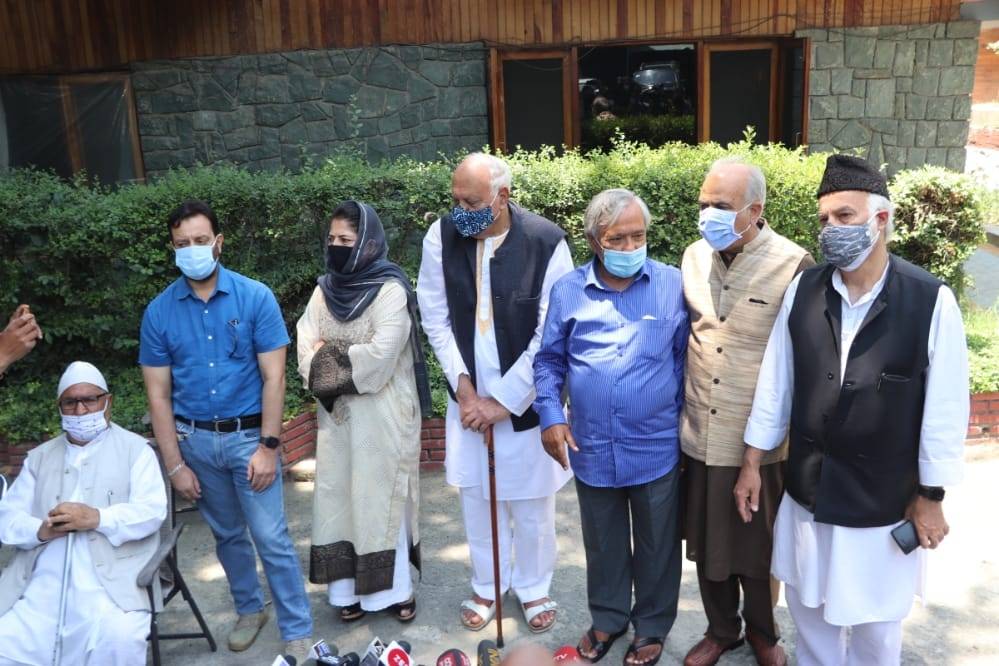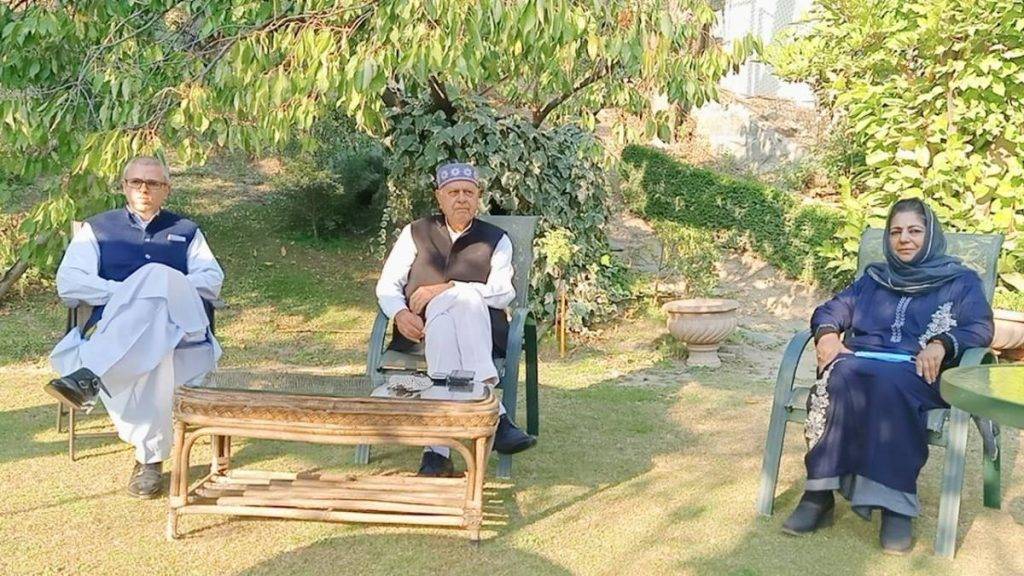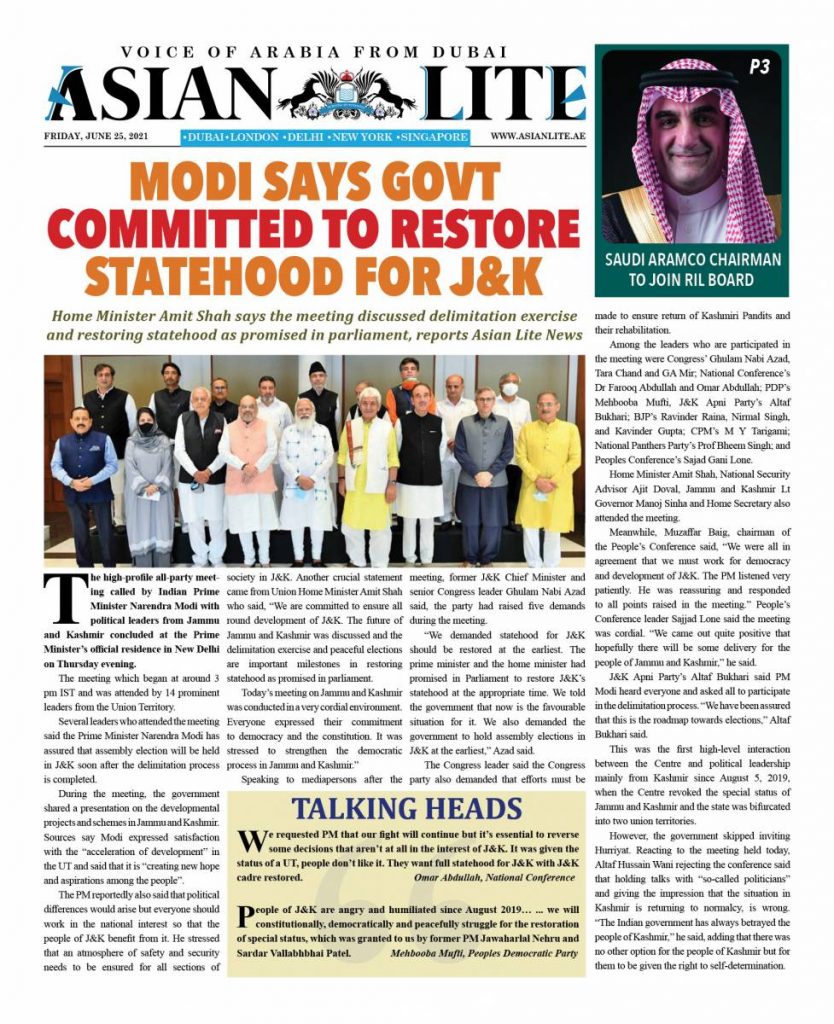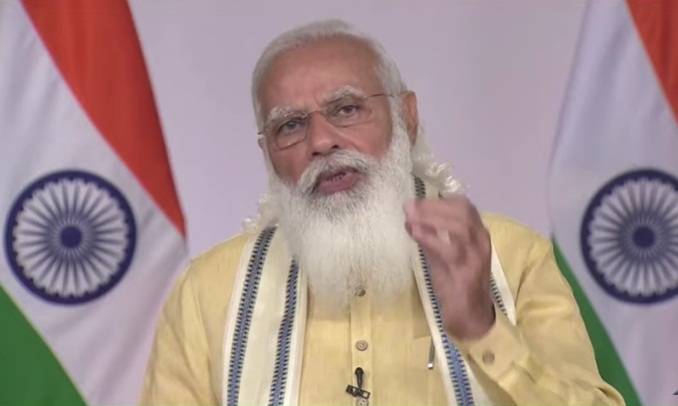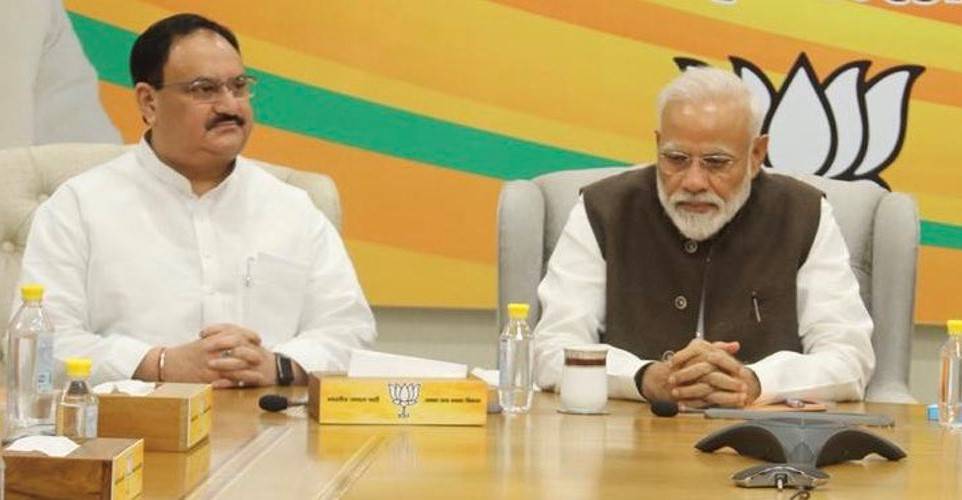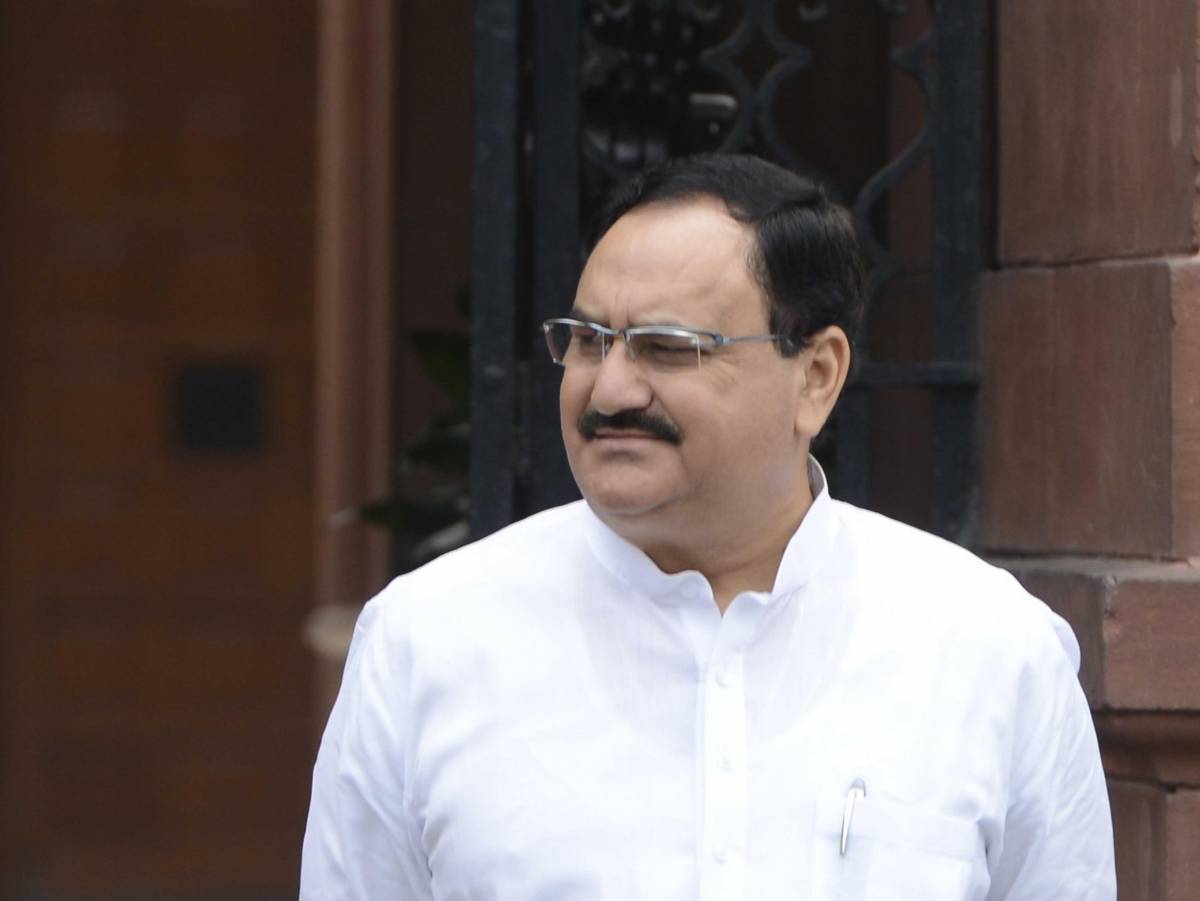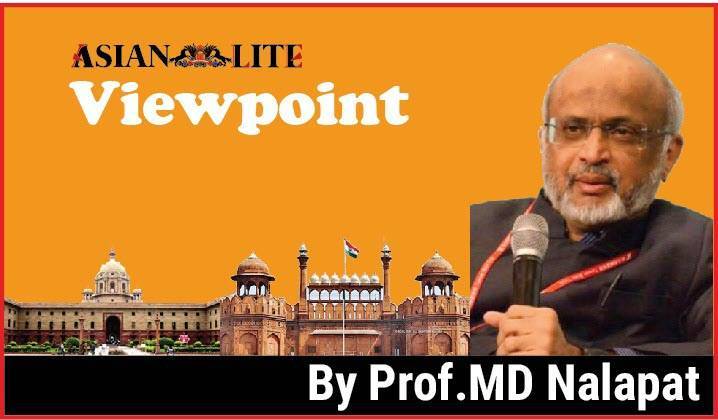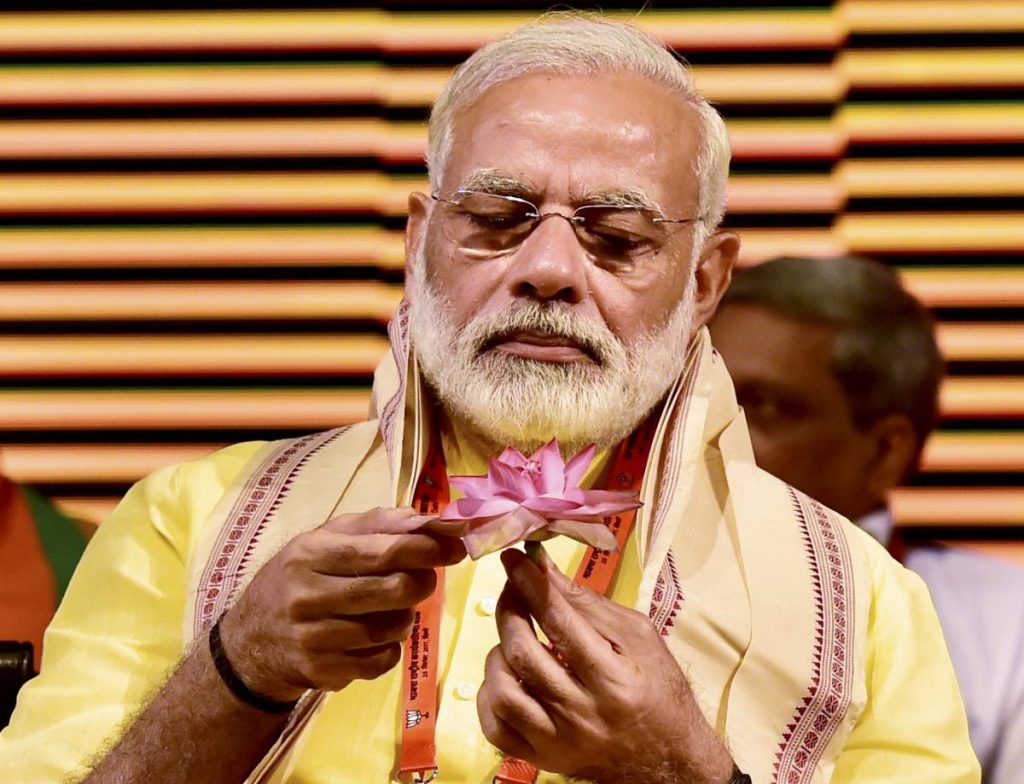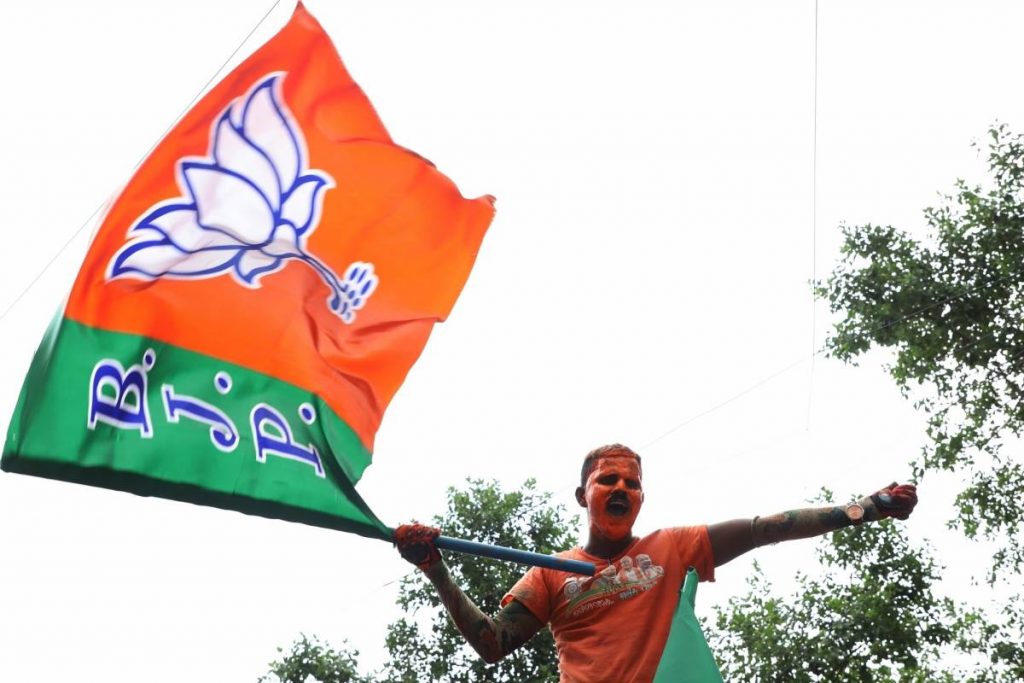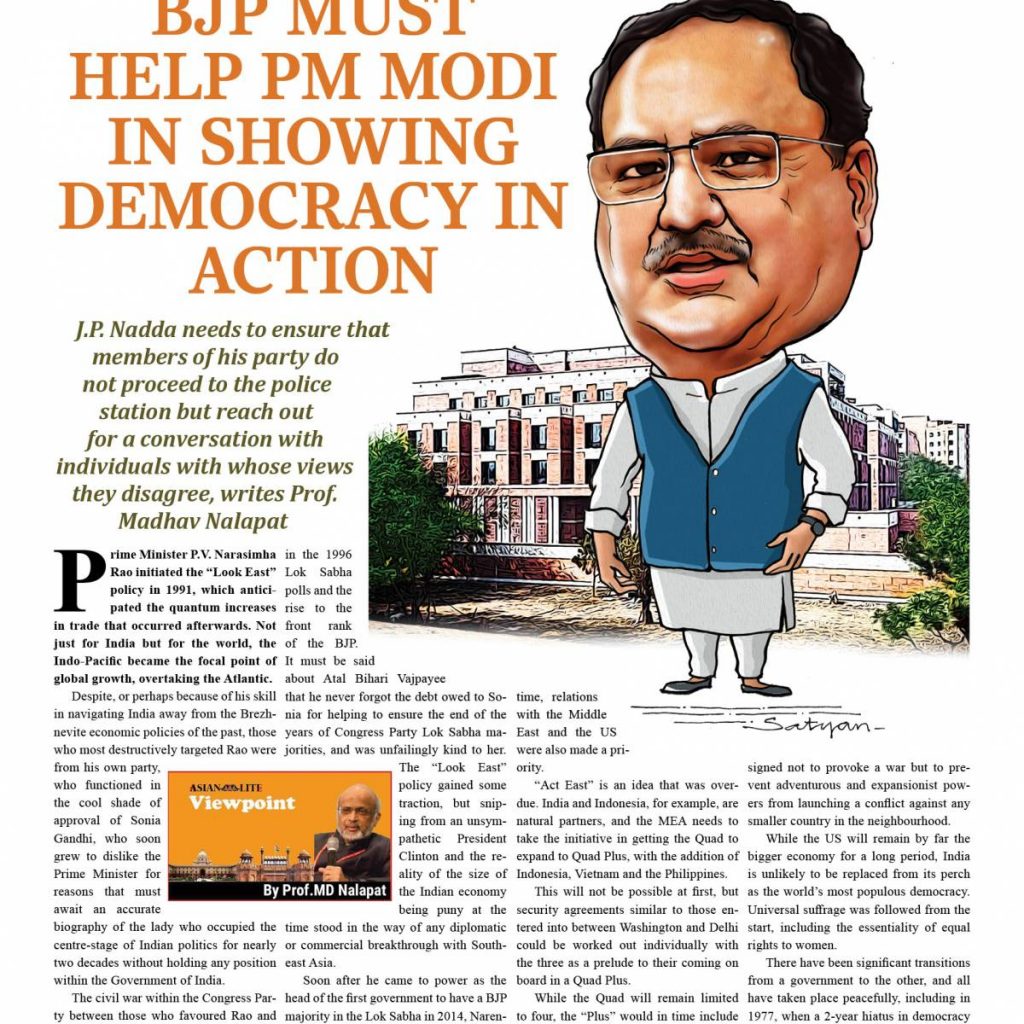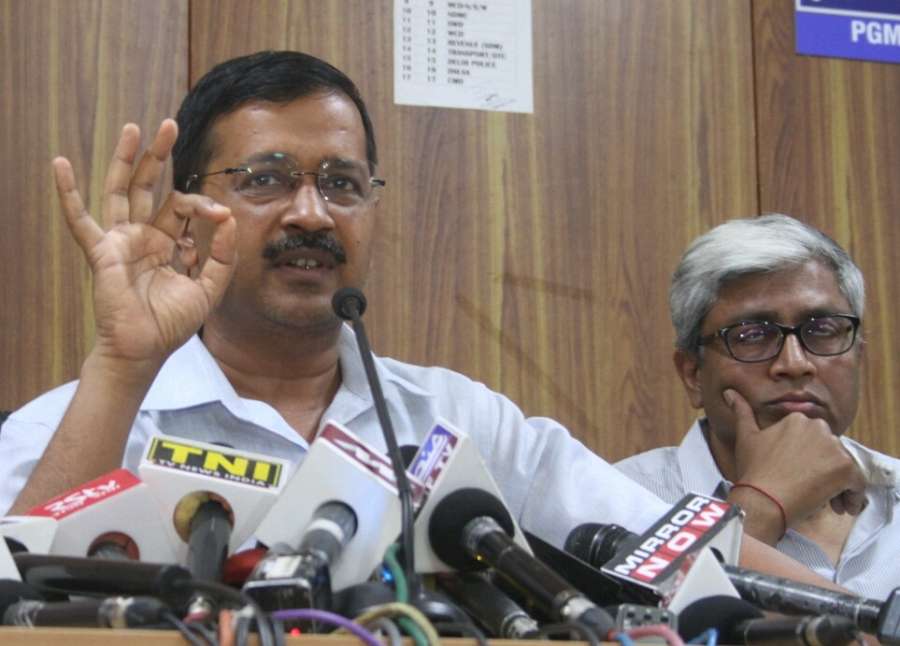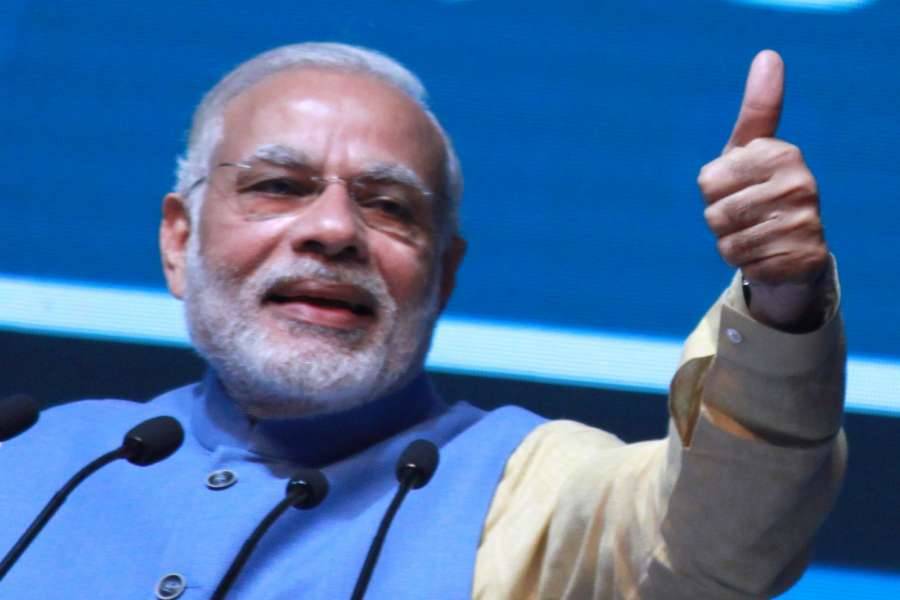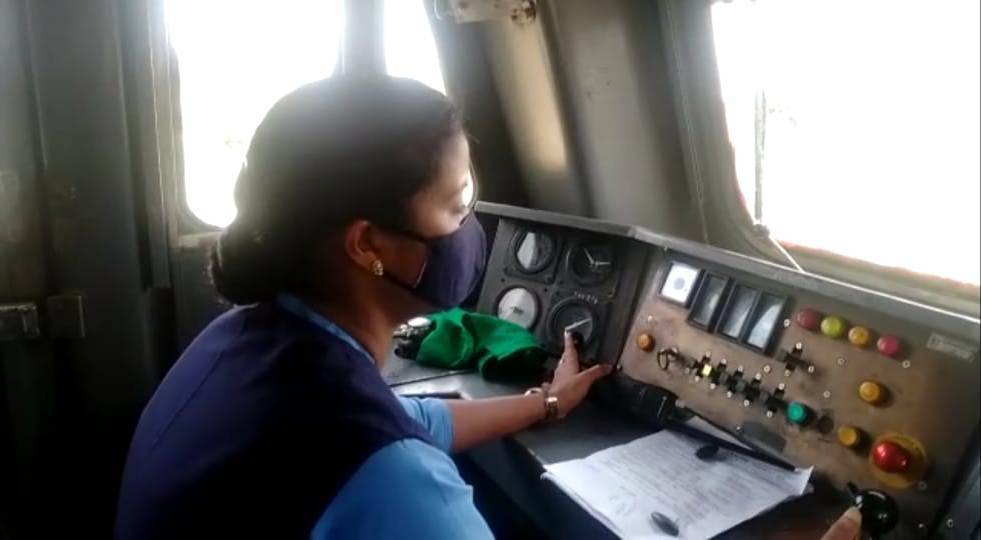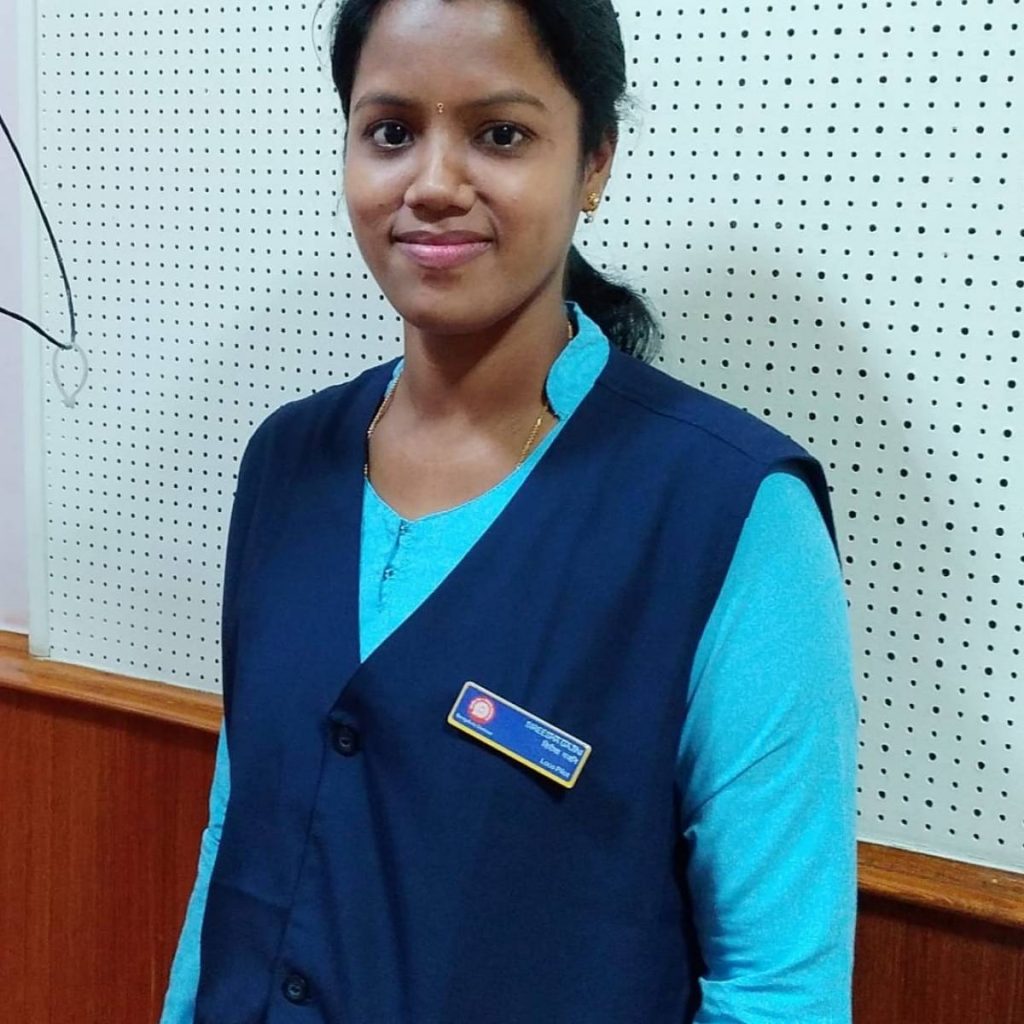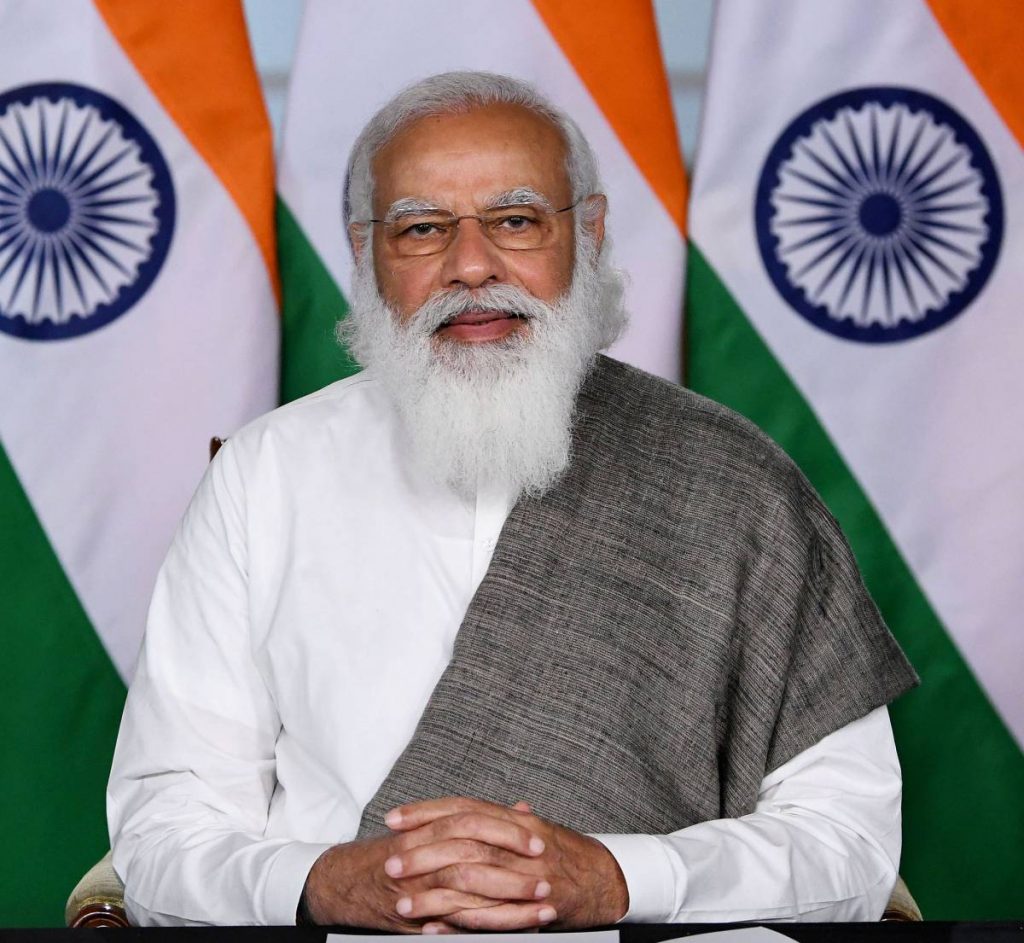Modi describes Kamala Harris as a “source of inspiration” for many people around the world and expressed confidence that bilateral relations will touch new heights under President Joe Biden and her leadership, reports Asian Lite News
During his ongoing US visit, Prime Minister Narendra Modi held bilateral talks with Vice President Kamala Harris and presented her with a bunch of unique gifts from India.
PM Modi presented Kamala Harris with a copy of old notifications related to her grandfather, PV Gopalan, in a wooden handicraft frame. PV Gopalan was a respected government officer who served in various positions in India.
PM Narendra Modi also gifted Kamala Harris a gulabi meenakari chess set. The craft of gulabi meenakari is closely associated with Kashi, one of the oldest cities of the world, which is also the constituency of PM Modi.
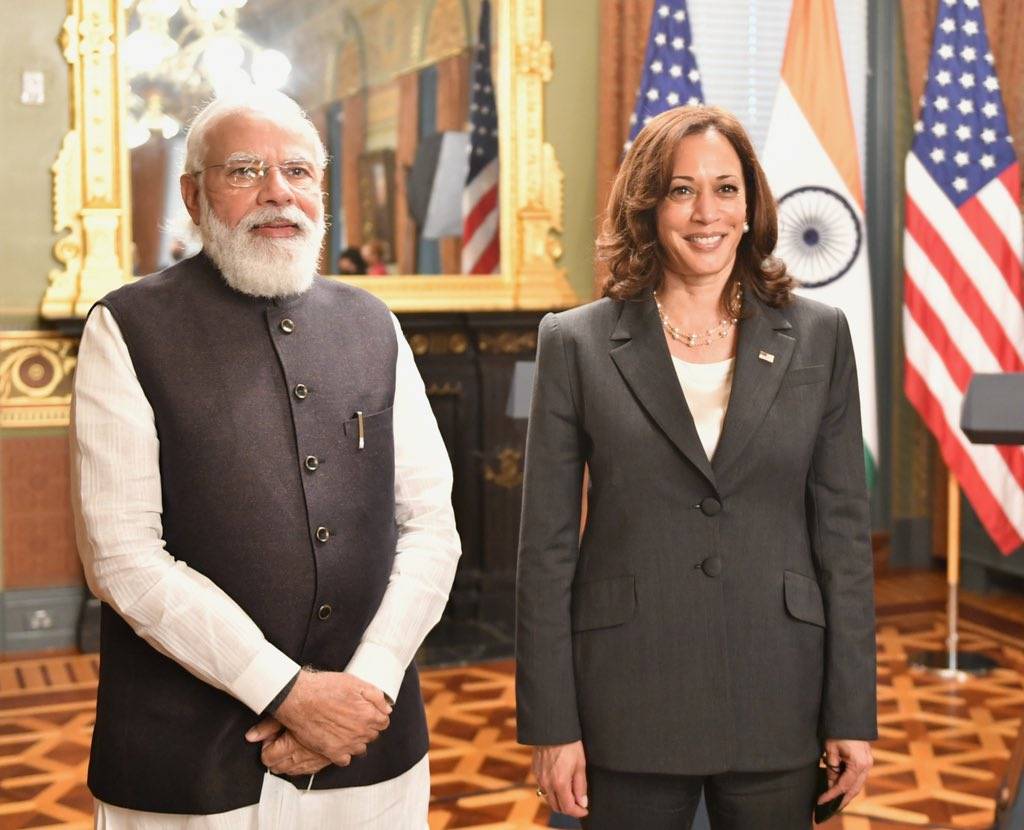
Each piece on this particular chess set is remarkably handcrafted while the bright colours reflect the vibrancy of Kashi. PM Modi and Kamala Harris hold a round of talks at the White House and later issued a joint statement on strengthening the Indo-US ties, tackling Covid-19 and other global issues.
Prime Minister Narendra Modi has described Kamala Harris as a “source of inspiration” for many people around the world and expressed confidence that bilateral relations will touch new heights under President Joe Biden and her leadership.
Later, PM Modi met with other Quad leaders. He gifted Australian PM Scott Morrison a silver gulabi meenakari ship, which is also distinctly handcrafted and reflects Kashi’s dynamism.
Japan Prime Minister Yoshihide Suga was gifted a sandalwood Buddha statue.
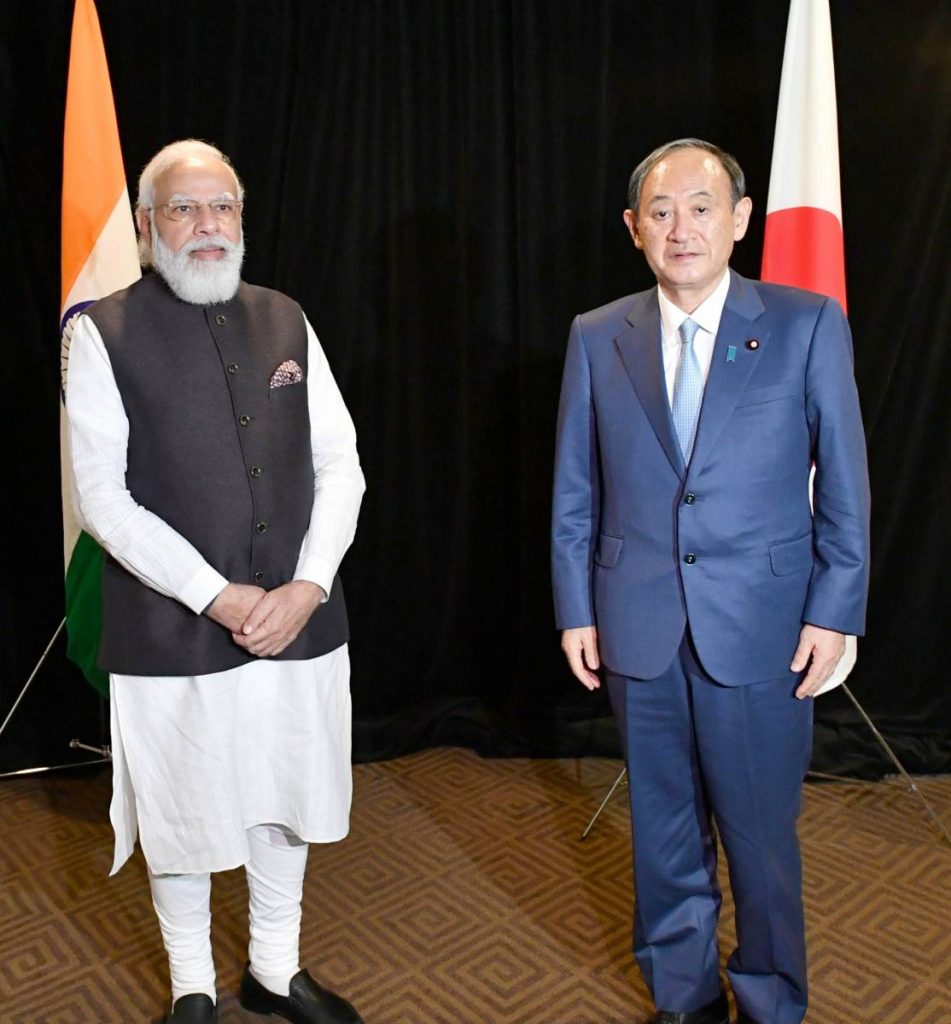
Buddhism plays a big role in bringing India and Japan together. The thoughts and ideas of Lord Buddha reverberate far and wide in Japan. During his previous visits to Japan, PM Modi has visited the Buddhist temples as well.
In one of the highly-anticipated engagements of his three-day US visit, Prime Minister Narendra Modi will hold a bilateral meeting with President Joe Biden at the White House on Friday.
This will be the first in-person meeting between the two leaders after Biden took over as the US President on January 20.
In a departure statement ahead of his US visit, PM Modi had said that he will review the India-US Comprehensive Global Strategic Partnership with President Biden and exchange views on regional and global issues of mutual interest.
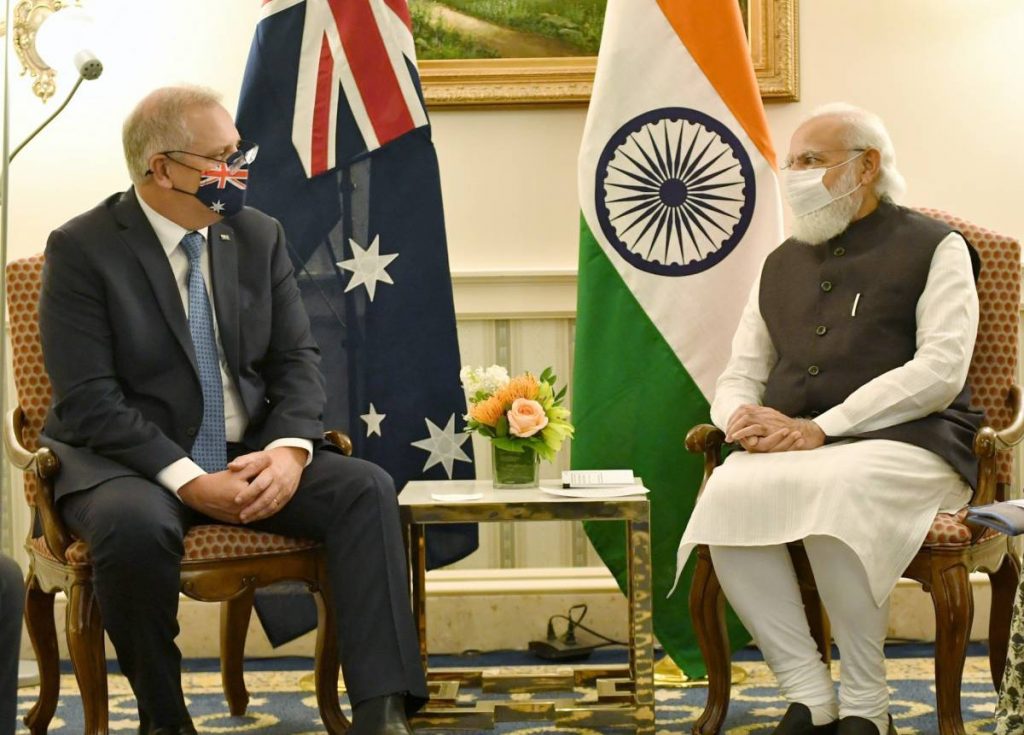
Foreign Secretary Harsh V Shringla had earlier informed that PM Modi and Biden will review “robust and multifaceted” India-US bilateral ties and will hold a discussion to bolster bilateral trade and investment ties. Both leaders will discuss the current regional security situation following the recent developments in Afghanistan in a bilateral meeting on September 24, he had said.
Biden will also host the first-ever in-person Quad Leaders’ Summit on September 24, which will be joined by Prime Minister Narendra Modi, Australian Prime Minister Scott Morrison and Japanese Prime Minister Yoshihide Suga.
The leaders will review progress made since their first virtual Summit on 12 March 2021 and discuss regional issues of shared interest, the Ministry of External Affairs informed in a statement on September 14.
“As a part of their ongoing efforts to contain the COVID-19 pandemic, they will review the Quad Vaccine initiative which was announced in March this year. They will also exchange views on contemporary global issues such as critical and emerging technologies, connectivity and infrastructure, cyber security, maritime security, humanitarian assistance/disaster relief, climate change and education. The Summit would provide a valuable opportunity for dialogue and interactions among the Leaders, anchored in their shared vision of ensuring a free, open and inclusive Indo-Pacific region,” it said.
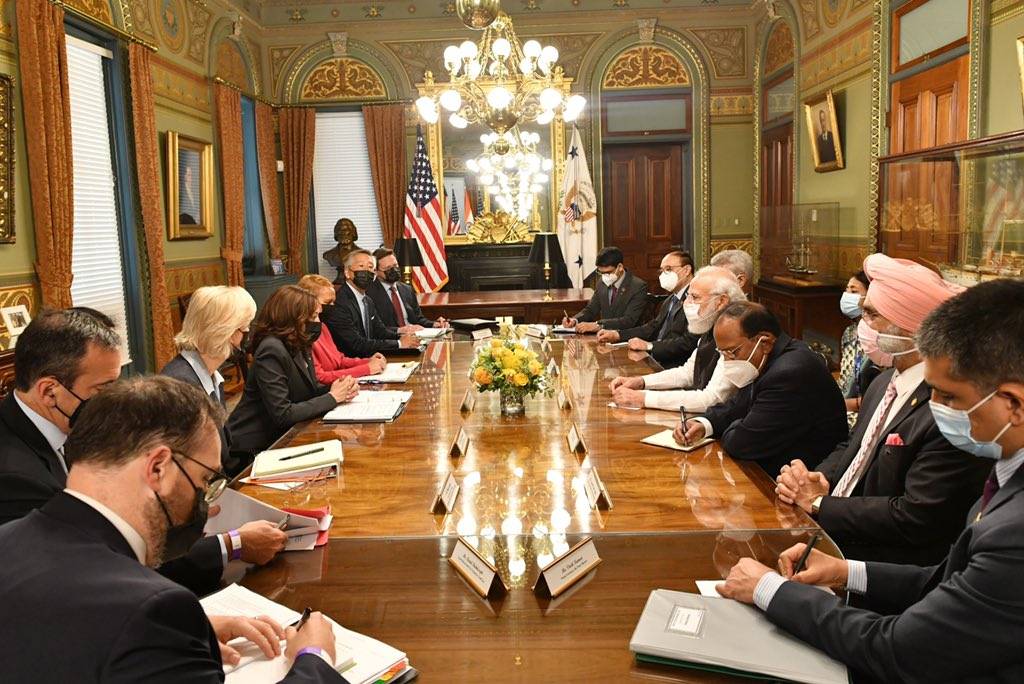
Earlier in April this year, President Biden spoke with PM Modi on a phone call, committing that the United States and India will work closely together in the fight against COVID-19.
PM Modi was also one of the first world leaders to congratulate Biden after he became 46th President of the United States of America.
The Prime Minister held delegation-level talks with US Vice President Kamala Harris and exchanged views on recent global and regional developments.
“Strong commitment to further deepen bilateral relations! PM Narendra Modi and VP Kamala Harris exchanged views on recent global & regional developments. Discussed our vibrant bilateral partnership, covering emerging and critical technologies, healthcare, education and P2P linkages,” Ministry of External Affairs spokesperson Arindam Bagchi tweeted.
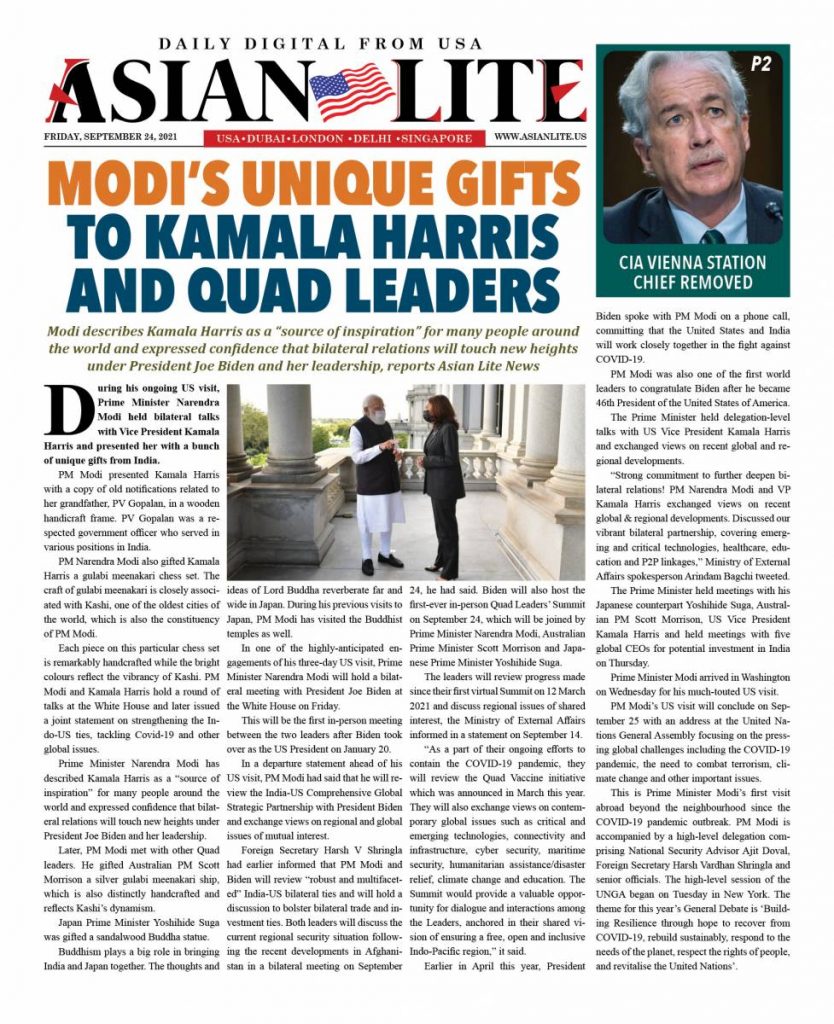
The Prime Minister held meetings with his Japanese counterpart Yoshihide Suga, Australian PM Scott Morrison, US Vice President Kamala Harris and held meetings with five global CEOs for potential investment in India on Thursday.
Prime Minister Modi arrived in Washington on Wednesday for his much-touted US visit.
PM Modi’s US visit will conclude on September 25 with an address at the United Nations General Assembly focusing on the pressing global challenges including the COVID-19 pandemic, the need to combat terrorism, climate change and other important issues.
This is Prime Minister Modi’s first visit abroad beyond the neighbourhood since the COVID-19 pandemic outbreak. PM Modi is accompanied by a high-level delegation comprising National Security Advisor Ajit Doval, Foreign Secretary Harsh Vardhan Shringla and senior officials.
The high-level session of the UNGA began on Tuesday in New York. The theme for this year’s General Debate is ‘Building Resilience through hope to recover from COVID-19, rebuild sustainably, respond to the needs of the planet, respect the rights of people, and revitalise the United Nations’.
ALSO READ – After meeting Modi, CEOs see high potential for India to attract investments

